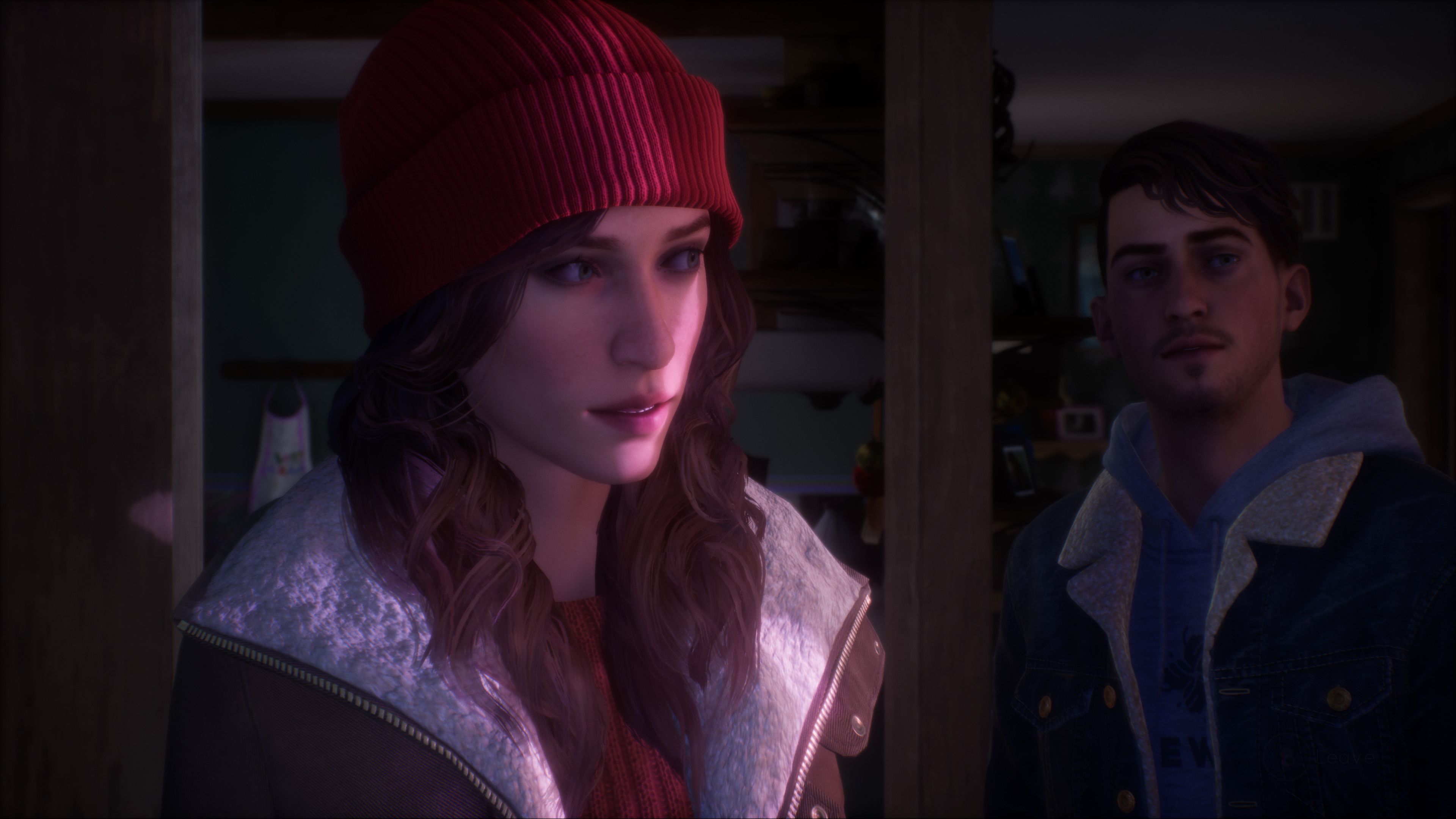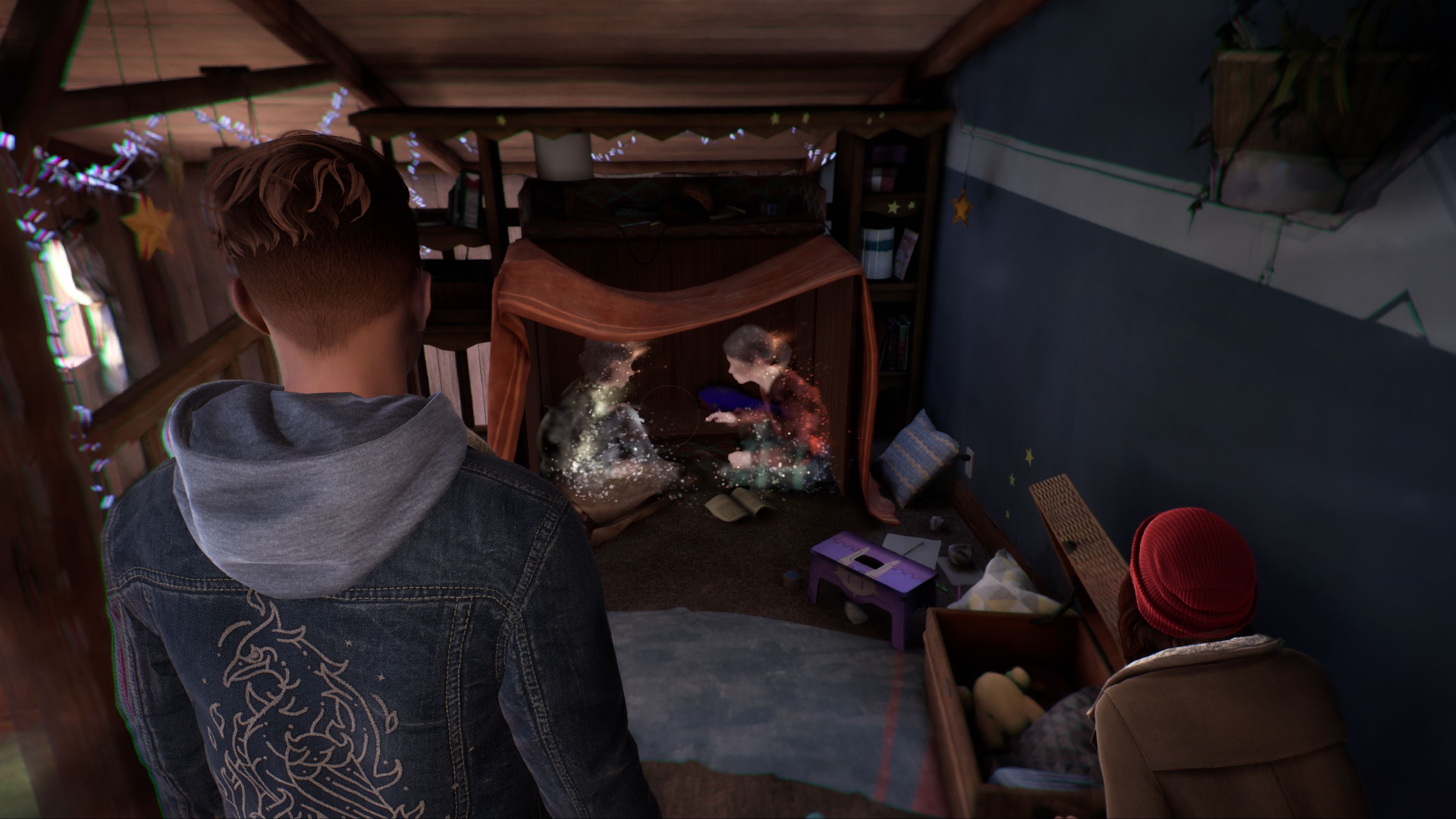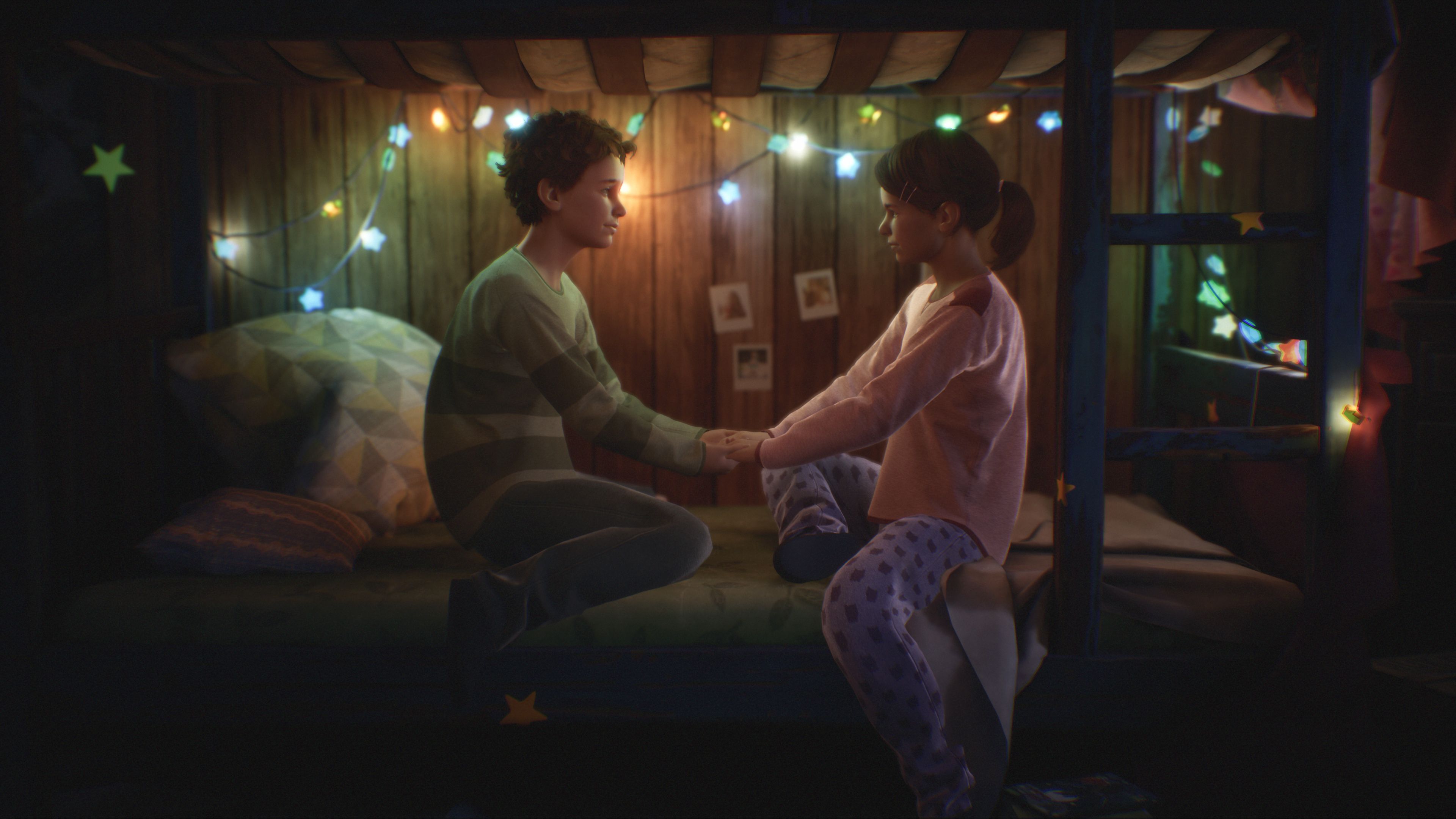Dontnod Entertainment struck gold with Life is Strange. The adventure game managed to blend the emotional impact of a coming of age story with interesting time reversal mechanics, to create a memorable cast of characters that lasted long in the memory. The series was followed up with a prequel and a well-received sequel, cementing Dontnod's place as one the prime storytelling developers around and building lots of excitement for Tell Me Why.
For those who are familiar with Life is Strange, Tell Me Why will feel awfully similar. It's another character and dialogue driven adventure game with magic realist elements, played over the course of incrementally released episodes. Covering themes of growth, home, and personal history, the player unravels a mystery while learning about characters through digging around in their property and having heartfelt conversations.
Tell Me Why focuses on twins Tyler and Alyson Ronan. Tyler is returning to his home town of Delos Crossing, Alaska, after spending a decade in the Fireweed Residential Center following the death of their mother Mary-Ann. The twins are looking to sell their family home, reconnect after such a long time apart, and understand the tragedy that happened ten years prior.
Of course, since this is a Dontnod game there is a bit of a twist. The twins can not only communicate non-verbally with one another, but also have the ability to replay memories from when they were children. Because of this newfound skill, they try to piece together their fractured childhoods to find some closure. However, it's not without knock-on problems that come along the way, albeit more subtle than the world-ending variety seen in Life is Strange.
This memory mechanic is used well by Tell Me Why. It plays with how the twins can sometimes perceive their history in different ways, often tied to their bias towards the actions and words of other inhabitants of Delos Crossing and how they have been treated. There's a sense of never truly knowing the real history of events, and the player will need to decide with version of the truth they choose to believe. What is perception, and what is reality?
Alyson and Tyler therefore have two skills at their disposal to find out the truth. Between the grounded solutions from tactful conversation and puzzle solving through to their latent powers, Tell Me Why is relatively light and breezy in comparison more traditional adventure games. It's about the story and the mystery, moving from set piece to set piece as the player steadily grows more attached to the game's cast.
To Dontnod's credit Tell Me Why does deliver a well structured and paced tale, particularly within its final episode where everything comes to a head. Delos Crossing itself has lashings of the small town vibe of Arcadia Bay, although it's a bit more sparse than Life is Strange's setting, reliant on beautiful vistas more than the complex web of Twin Peaks-style drama. It's a town that has never truly healed from Mary-Ann's death, but that cannot address its past.
It's an intoxicating setting, leaving Tell Me Why tied up in character relationships and old wounds. The game can feel a little too binary in terms of choices, and much like Life is Strange closure can be found a little too cleanly and the exposition can be a little too heavy. Although its three episodes do need to cover a lot in a short amount of time, being strict with the player and leaving more bittersweet notes might have made it feel more impactful.
One of the key talking points of Tell Me Why ahead of release was the fact that Tyler is a trans man. Given his place as reportedly the first transgender playable character in a major release, Dontnod is understandably meticulous in its approach, avoiding deadnaming him when looking over history and events that happened before he started his transition. The inhabitants of Delos Crossing are also refreshingly tolerant, avoiding the trope of Tyler's position as a trans man becoming all that defines him as a character. From here, Tell Me Why can stretch its legs and focus more on interpersonal relationships.
It does feel a little on the nose at times, though, with Tyler sometimes giving a little too much information about his life when a simple "I don't need to tell you that" would feel more realistic. There's a similar issue with another of the mindful moments of the game, as Tell Me Why also ensures representation of the Tlingit culture of Alaska through the underused character of Michael, a queer Tlingit man. The game struggles to find a middle ground between informing its audience and avoiding contextual information dumps from characters who should be people rather than walking encyclopediae of their minority status. However, in comparison to some of the much more awkward attempts in gaming, with Mass Effect Andromeda an egregious example, Tell Me Why is positively refreshing.
Although there are a few clunky elements here and there, thankfully the core relationship between Alyson and Tyler is strong. This is at its best during Tell Me Why's introspective moments, with the game not afraid to let the silence hang while building the quirkiness of the duo. Siblings are hard to portray in video games, but the leads do seem to have a special bond beyond their powers, intensified by the exploration of childhood stories of goblins and woodland creatures which act as an allegory for their early years.
The tension between Tyler and Alyson is also well handled. Alyson was stuck in Delos Crossing while Tyler was at Fireweed, and therefore she saw first hand how things changed - and didn't change - over the course of ten years. Her perspective is very different from his, with the weight of what happened to their mother changing her worldview in subtle ways.
It's here where Tell Me Why turns a lens to the world outside of its video game confines, aside from its aforementioned positive representation. The impact of mental illness of Mary-Ann's life - and to a lesser extent Alyson's - is explored, and is perhaps the most long-running thematic thread in the game. It's not perfect in how it approaches mental health, but it does push some interesting discussion points forward.
The most important of these is Tell Me Why's subtext of the lack of social care for mental illness in society as a whole. In Delos Crossing, much like in large swathes of the real world, there is no chance of therapy, and no chance of state or medical support, and instead vulnerable individuals with mental illnesses are left to be cared for by the local community. These communities have limited knowledge, resources and patience to support those in need, particularly when mental ill health cannot be defined by the sparse medical assistance available, and individuals can easily be exploited by those who look to do so, with fatal consequences.
It's a bold statement, although Tell Me Why does still fall into some long-standing traps. It is, after all, still a story about the potential violence inflicted by those who live with mental illness, even if it eventually swivels to discuss the violence and dangers faced by them as well. Meanwhile a lack of clarity over the details means that the game never really gets into difficult conversations as much as it could, preferring instead to focus on external trauma, leaving it a little shy of games like Hellblade: Senua's Sacrifice in terms of representation.
All in all, Tell Me Why is another strong effort from Dontnod. The care it takes with its characters is to be applauded, and although it doesn't always hit the perfect spot with its themes the fact that it is discussing them at all is commendable. Those who enjoyed Life is Strange will get a kick (and a cry) out of its cast and plot, and at least it's not afraid to talk about uncomfortable topics in an age where so many developers are trying so hard to be apolitical.
Tell Me Why releases its first episode on 27 August 2020 for PC and Xbox One, with subsequent episodes on 3 September and 10 September. Screen Rant was provided with a PC download code for the purposes of this review.





